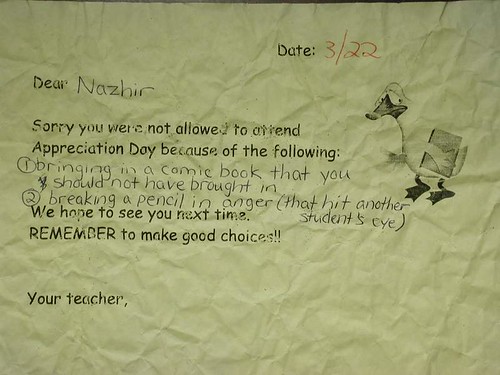Case in Point
 This semester, a colleague of mine took a leap of faith to introduce a collaborative project to his English students. Students were grouped and assigned rotating roles that involve writing, drawing, recording, designing, and leading. The multi-week project is focused on the novel 'To Kill a Mockingbird' and has resulted in the development of group websites at Wix.com. While you can see some of the work students completed in the early days, network access to the site has now been blocked.
This semester, a colleague of mine took a leap of faith to introduce a collaborative project to his English students. Students were grouped and assigned rotating roles that involve writing, drawing, recording, designing, and leading. The multi-week project is focused on the novel 'To Kill a Mockingbird' and has resulted in the development of group websites at Wix.com. While you can see some of the work students completed in the early days, network access to the site has now been blocked.After reading Chris Kennedy's How to Stop Good Ideas Getting Shot Down, I have come to realize that many of John Kotter's 'blocks to good ideas' are serving as barriers the use of technology in my school:
Fear Mongering: "The website puts the security of the network is at risk."
Death by Delay: "If you review your unfiltering request with your principal, and your principal makes a recommendation to program council, and program council approves the use of the site, then a communication to ICT will allow us to consider whether or not we can provide access."
Confusion: "Facebook is the problem. If they do this, then that, while visiting that URL, then students would be able to access their Facebook accounts through the site."
 Do those making the decision to modify filtering policies even consider the ramifications? Working to engage in his students in this rich project-based learning experience, my colleague ensured that student roles addressed expectations in reading, writing and media. He had to ensure his classroom could accommodate a range of production team roles; had to book computer lab time, and had to find a way to assess the differentiated contributions of participants. More than that, he had to take a huge risk attempting a project he'd never done before.
Do those making the decision to modify filtering policies even consider the ramifications? Working to engage in his students in this rich project-based learning experience, my colleague ensured that student roles addressed expectations in reading, writing and media. He had to ensure his classroom could accommodate a range of production team roles; had to book computer lab time, and had to find a way to assess the differentiated contributions of participants. More than that, he had to take a huge risk attempting a project he'd never done before.It's been three school days since access to Wix has been blocked. If things change, I'll add an update in the comments below. In the meantime, I have no idea what to suggest for the lessons lost, or yet to come. Should we encourage the students to work at home on these tasks? Do we complete the tasks offline? Dare we re-invent the project?
Maybe it's just not worth trying to be a mockingbird?
"Please take out your pencils and notebooks and copy this note from the board... There will be a test on this material next week."





